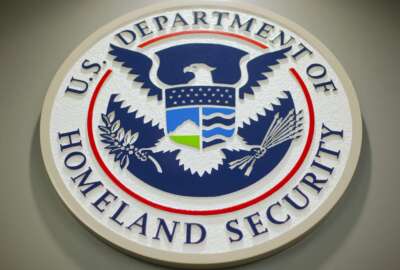Agencies required to share custom software under new law
The SHARE IT Act, now law, builds on previous efforts to ensure agencies are sharing common software code across government.
Agencies over the next year are being tasked with ensuring they own their custom software code and share it across government under a new law signed by President Joe Biden last week.
Biden signed the “Source Code Harmonization And Reuse in Information Technology Act” on Dec. 23. Known as the “SHARE IT Act,” the bill was first introduced by Senate Commerce Committee Ranking Member Ted Cruz (R-Texas) and Homeland Security and Governmental Affairs Committee Chairman Gary Peters (D-Mich.) in January 2024.
In introducing the legislation, lawmakers pointed to the $12 billion agencies spend on software annually. That figure includes both commercial software and custom-developed products.
The goal of the legislation is to minimize duplicative software development, while boosting efficiency and security.
“Ensuring the federal government is sharing code across agencies will save taxpayers money, increase digital efficiency for government services, strengthen security and enable innovation in software,” Peters said in a statement last January. “This bipartisan bill is a critical step forward in advancing the digital capacity of the federal government and will benefit Americans as they access government services online.”
The new law gives agencies 210 days — until mid-July — to publish their custom-developed software in a public repository or a private listing that can be accessed by other federal agencies. Agencies also have the same amount of time to make the metadata for any custom-developed code publicly accessible.
Agencies can choose to share their code using existing tools like Code.gov, open-source tools like Git, or commercial platforms like GitHub or Bitbucket.
The law additionally mandates that agencies “shall acquire and exercise rights sufficient to enable the governmentwide access to, sharing of, use of, and modification of any custom-developed code created in the development of such software.”
Code developed by contractors for agencies is also subject to the Freedom of Information Act under the new law.
But national security systems, classified code and systems with privacy risks are exempt from the SHARE IT Act’s disclosure requirements.
Agency chief information officers are charged with developing SHARE IT Act policies by mid-June.
And by next December, the federal chief information officer is tasked with establishing a framework “for reviewing the software being developed across the federal government to surface and support the goals of existing digital priorities.”
Building on Federal Source Code Policy
The SHARE IT Act builds on previous efforts to make better use of common software across government.
In 2016, White House officials issued a new “Federal Source Code Policy” that directed agencies to inventory custom-developed code and make it available government-wide at Code.gov. It also set up a pilot program under which agencies would release at least 20% of their custom code as open source software.
But lawmakers behind the SHARE IT Act say the policy had no enforcement mechanisms. More than eight years after the policy was released, Code.gov shows that 13 agencies still do not share inventories of their custom software code.
Research has previously found that despite the policies, agencies tend to stray away from embracing things like open source software.
“Each year, federal agencies spend billions for software that may be duplicative because it is not shared between agencies, despite existing infrastructure to do so,” Cruz said when introducing the legislation.
Agencies have seen some success and cost savings in sharing software code. In 2019, officials with the General Services Administration’s 18F digital services team estimated that a shareable website tool was saving agencies $100,000 per project.
GSA also set up a shared contract for geospatial software. GSA’s Federal Acquisition Service estimated the contract has saved agencies 5% on-average.
But lawmakers believe there are more savings to be had in the billions agencies spend on software each year.
“At a time when our national debt is over $34 trillion, American taxpayers can’t afford to be saddled with billions in wasteful spending on redundant software that could easily be avoided,” Rep. Nick Langworthy (R-N.Y.), a House co-sponsor of the SHARE IT Act, said in September.
Copyright © 2025 Federal News Network. All rights reserved. This website is not intended for users located within the European Economic Area.
Follow @jdoubledayWFED






